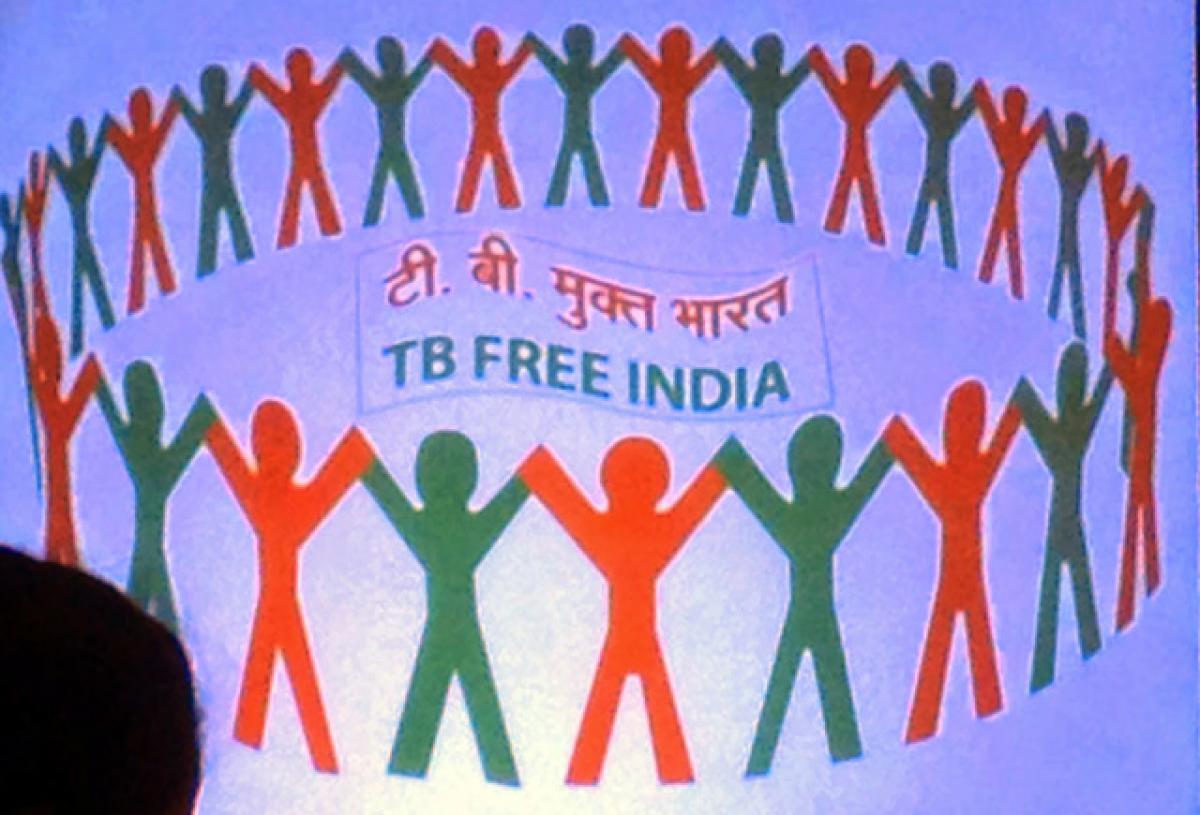Live
- A Guide to Temperature and Humidity Standards in Data Center Server Rooms
- Gadwal collector briefs on details of voters
- Jupally Krishna Rao takes part in Alampur rallu
- Bharath Prasad files 3rd Nomination
- Baisakh Month: A Time of Auspicious Beginnings and Sacred Festivals
- Oust BJD govt for overall development, says Shah
- Unveiling the Hidden Gems: Surprising Health Benefits of Garlic Peels
- Overcoming Sleep Struggles: A Comprehensive Guide to a Restful Night
- RTC bus hit the auto
- MLA Kuchukula Rajesh Reddy participated in the Birappa festival
Just In

Empower community to end TB. While the patient has to be is central to all the actions, civil society can act as an interface between the RNTCP and the community.
There is much less information, education and awareness in TB patients as compared to people living with HIV (PLHIV). There are very few TB activists from the patients
Recently a TB partners and civil society organizations (CSOs) consultation meet was held in Delhi for ‘Spearheading Civil Society Action Towards a TB Free India’, with a view to aligning campaign objectives and goals with partners by sharing solutions and discussing the way forward on existing gaps or challenges in implementing the Call to Action (C2A) for a TB-Free India.
.jpg)
The C2A (a component of USAID-funded Challenge TB project of the International Union Against Tuberculosis and Lung Disease - The Union) aims to engage and mobilise multiple stakeholders including private health sector, corporate sector, civil society, media, academia and the community to achieve this aspirational goal.
Undoubtedly, civil society is an integral part of the Revised National Tuberculosis Control Programme (RNTCP) of India and has helped by generating awareness at the peripheral level by taking the programme to the patients’ doorsteps. Several speakers at the meet reiterated the importance of active participation and involvement of the affected community with the RNTCP to help realize the dream of a TB free India.
While the patient has to be is central to all the actions, civil society can act as an interface between the RNTCP and the community. Lamenting that while India harbours one-third of the global TB burden, it also has an unreached population of 1 million TB patients who are missing from the government programme, Dr Sunil Khaparde, Deputy Director General at India's Central TB Division (CTD), said that the marriage between government and civil society should benefit the affected community.
He called poverty, illiteracy, and malnutrition the social pathology of TB that needed as much attention as TB treatment. For this, social support schemes should reach those in need of them down to the Panchayat level as this support is crucial for treatment adherence. While lauding the successful model of RNTCP, he admitted that a lot more needs to be done.
“We need to bring down the annual TB incidence rates have to reduce by 20% annually from the current 2%, if we have to achieve our goal of TB free India. To achieve this active case finding is very important by reaching out to the community, especially in high-risk areas. We need a two-way trust between government and NGOs.
Flexibility in programmes is necessary. There must be coordination between different NGOs and between NGOs and government. We also require strict regulations for the private sector. We cannot work in silos”, he said. Stigma is another big problem that makes us sweep TB under the carpet. It often deters TB patients from either seeking treatment and/or completing it.
Dr PC Bhatnagar from Voluntary Health Association of India (VHAI) felt that action is not percolating to the district/sub district level. According to him, “We cannot have islands of excellence in a sea of mediocrity.” Activists Loon Gangte and Hari Singh of Delhi Network of People living with HIV (DNP+) rightly pointed out that there is much less information, education and awareness in TB patients as compared to people living with HIV (PLHIV). There are very few TB activists from the patients.
PLHIV networks can help in this direction, as TB is a very high-risk mortality factor for them. One thing that came out clear and loud was that the patient should be central to the programme. There is a dire need for proactive TB patients groups to be there and to be involved with planning, implementation and monitoring.
Real TB champions/advocates need to reach out to affected community. But then as Blessina Kumar said, “For affected communities to inform policies, they need to be empowered and have information/knowledge. For this we need to invest in them”. (The author is the Managing Editor at Citizen News Service)
By Shobha Shukla

© 2024 Hyderabad Media House Limited/The Hans India. All rights reserved. Powered by hocalwire.com







